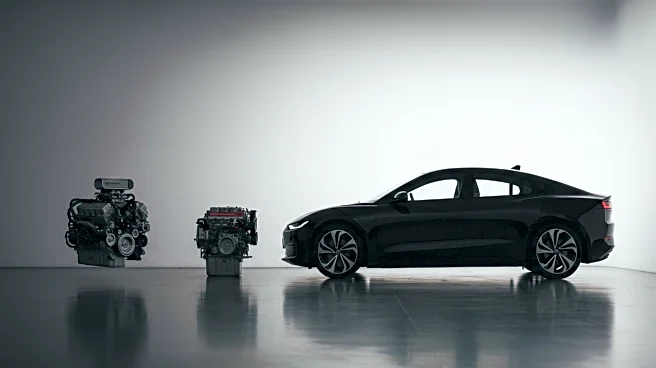What is the story about?
What's Happening?
Mercedes-Benz USA is reportedly in discussions with BMW to purchase four-cylinder engines for its vehicles starting in 2027. This potential partnership comes as Mercedes-Benz reevaluates its strategy to transition to electric vehicles. Initially, the company had committed to becoming an EV-only brand by 2030, but this plan was revised in 2024 due to slower-than-expected global uptake of electric vehicles. The engines in question, likely derivatives of BMW's turbocharged 2.0-liter B48, are versatile and can be used in various Mercedes models. This move could also involve establishing a shared engine plant in the U.S., which would help Mercedes avoid high tariff costs associated with engines manufactured in China.
Why It's Important?
The potential collaboration between Mercedes-Benz and BMW signifies a strategic shift in the automotive industry, highlighting the challenges faced by manufacturers in transitioning to electric vehicles. By considering BMW engines, Mercedes-Benz aims to maintain flexibility in its lineup, accommodating both internal combustion and hybrid technologies. This decision reflects broader industry trends where companies are hedging their bets on multiple powertrain technologies due to uncertain consumer demand for EVs. The partnership could also have significant economic implications, potentially reducing production costs and tariffs, thereby impacting pricing and competitiveness in the U.S. market.
What's Next?
If the partnership proceeds, Mercedes-Benz and BMW may establish a joint engine manufacturing facility in the U.S., which would streamline production and reduce costs associated with tariffs. This collaboration could set a precedent for other automakers facing similar challenges in the EV transition. Stakeholders, including industry analysts and competitors, will closely monitor the developments, as they could influence future strategic alliances and technological advancements in the automotive sector.
Beyond the Headlines
The rumored partnership between Mercedes-Benz and BMW could have deeper implications for the automotive industry, potentially reshaping traditional rivalries and fostering new collaborative models. This shift may prompt discussions on the ethical and environmental impacts of prolonging the use of internal combustion engines, as well as the cultural significance of such alliances between iconic brands.















